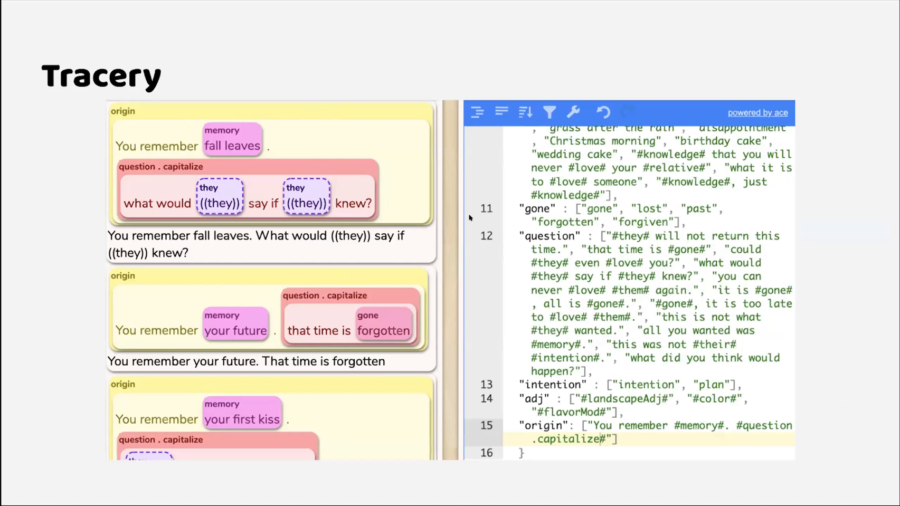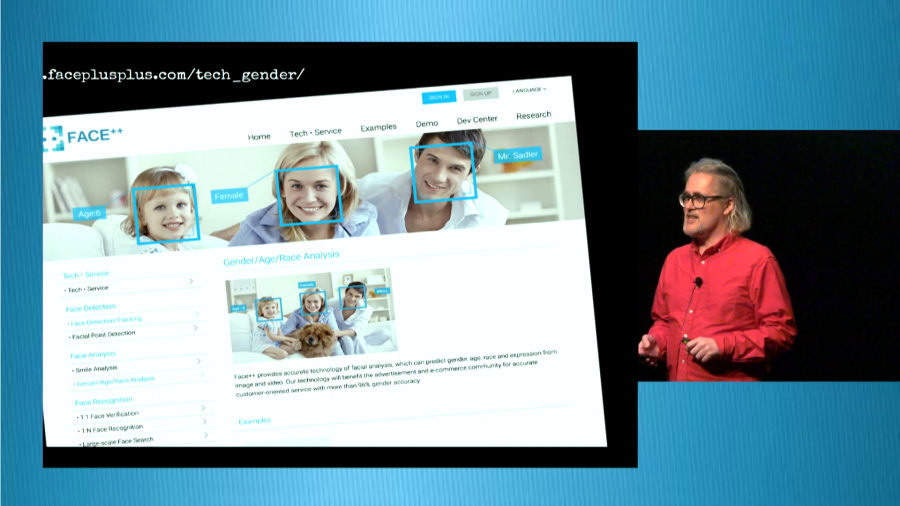One of the really amazing things about Tracery is that I made it when I had just learned Javascript. It managed to be like, mostly bug-free. But because it’s a very small library and it doesn’t do anything terribly complex, it ended up being able to run largely without me. And so it spawned this massive community that is completely distributed.
Archive (Page 1 of 3)
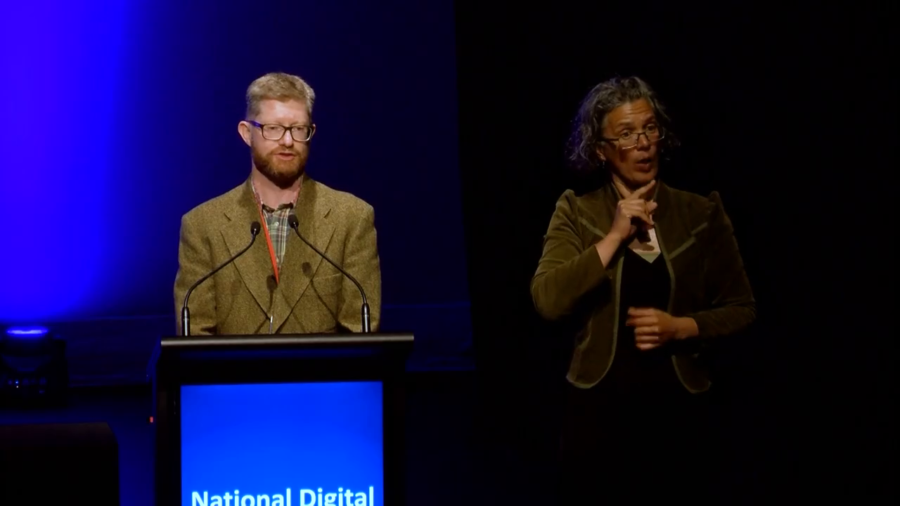
Meeting these different bots has just reinforced one thing: the images that you’re capturing, the online collections you’re sharing, just provide a foundation for all different ways of engaging your audience. The more accessible your content is, the more open the licenses you use, the more chance you’ve got of having your content used in new and different ways.
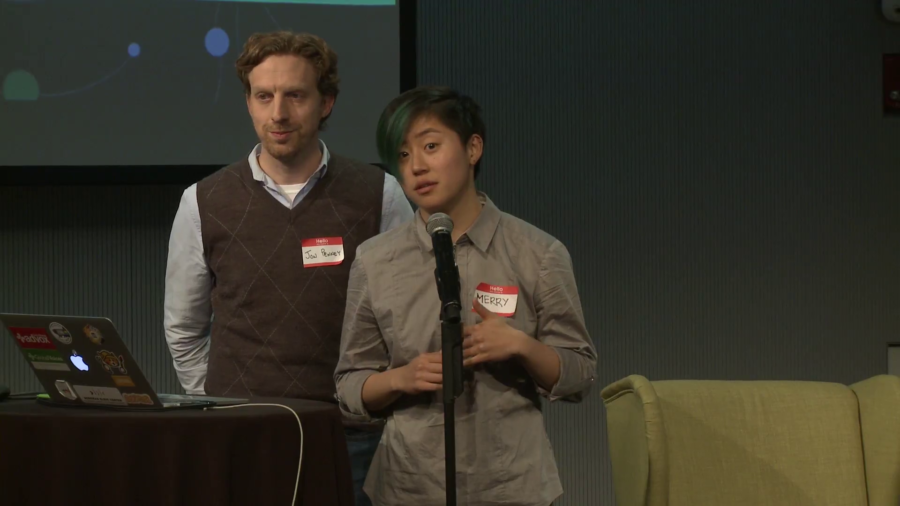
Underlying this project is a pretty simple and we think powerful idea that provides a solution to a complex challenge that’s facing online communities like Twitter, like Reddit, within the CivilServant universe. That challenge is the increasing automation of the enforcement of legal rules and norms online.
For any artists that are working in this field now, if I was good at painting I’d probably be looking at how to find styles that work well with these kind of representations and make them easily automatable or transferable so that if I had fans as an artist they could say, “Hey, I would like to have a picture of my cat painted.”
I’m interested in what happens when artists who are used to being artists decide that the best place for a work is within a space that seems to require an entirely different method of construction. And of course, there’s no harsh line between forms, and plenty of people exist both as highly-proficient working artists and exceptionally skilled programmers. Tons of them, right? But I’m not talking so much about the skill or even background. Instead of I’m interested in mentality.
With Twitter bots and a lot of AI in pop science, it’s kind of like staying up late with your parents. Once you ask to be treated like a human being, you have to abide by a different set of rules. You have to be extra good. And the second you misbehave, you get sent to bed. Because you didn’t play by the rules that you were agreeing to be judged by.
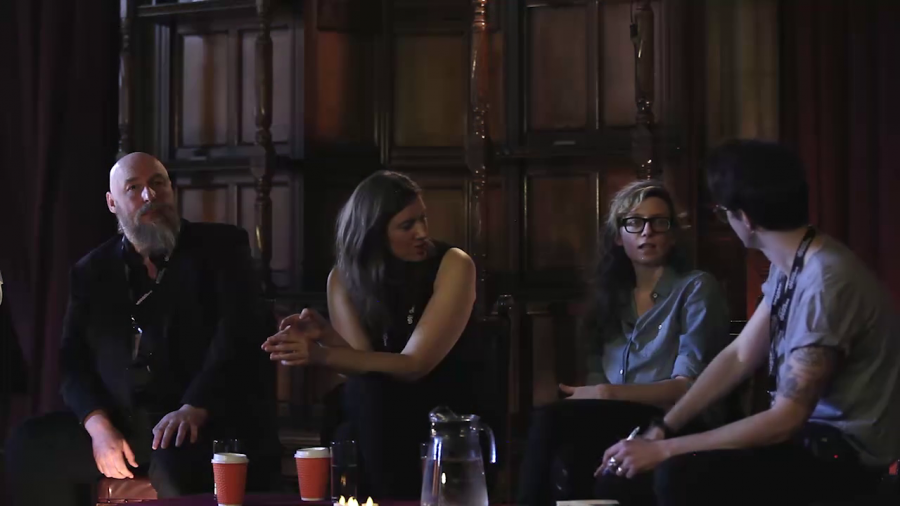
Pretty much anything that Lucifer says in Paradise Lost, you could probably imagine the CEO of Uber saying. They’re just disrupting the Heavenly orders, you know. They really needed it.
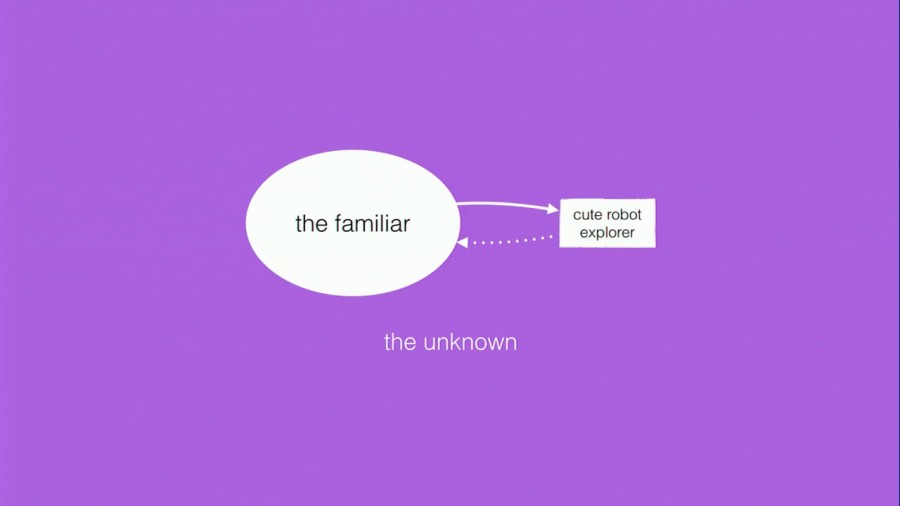
I’ve made it my goal as a computer poet not to imitate existing poetry but to find new ways for poetry to exist. So what I’m going to do in this talk is take this metaphor of exploring literature to its logical conclusion.
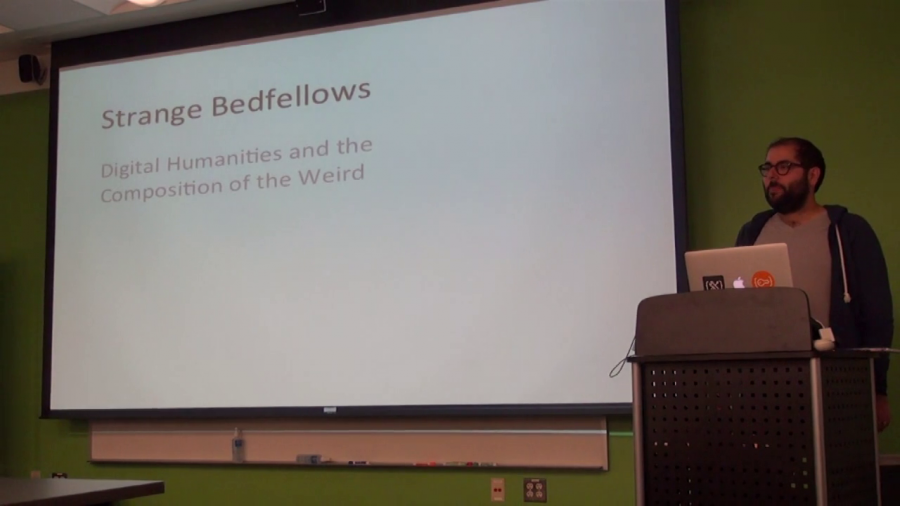
I’m here at MITH today, and I wanted to talk a little bit about digital humanities from my position as an interested outsider. I’ve always kept a finger in academia, at first through game studies and people studying video games, and more recently through electronic literature and those fields. I’m not going to go into a “what is it?” debate because I know everyone who’s in digital humanities is very tired of those, but we know when we see it, right?

